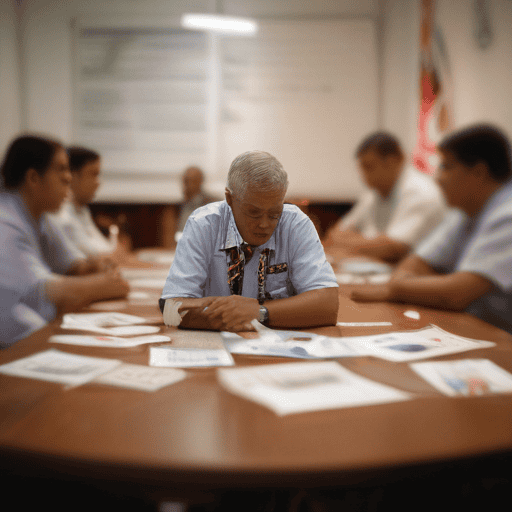A National Consultation will take place on January 16, 2025, at Suva Grammar High School Hall, providing a crucial platform for stakeholders to discuss the proposed repeal of the controversial ‘No Repeat Policy’, also known as Automatic Progression. This policy has come under scrutiny for permitting students to advance to the next grade level regardless of their academic performance, raising significant concerns among educators and policymakers.
Minister for Education Aseri Radrodro emphasized the importance of the consultation, which will gather insights from a diverse group of participants, including parents, teachers, student representatives, and educational partners. He stated that engaging multiple voices in this discussion is key to achieving equitable policy outcomes and ensuring all views are taken into account.
The motivation behind this initiative stems from alarming data on student performance following recent Year Eight examinations, where nearly half of the 19,350 students registered failed to achieve passing scores. This has highlighted the potential negative impact of the Automatic Progression system, fostering a culture of complacency among students who may feel less incentivized to strive for academic success.
In alignment with Sustainable Development Goal 4 (SDG 4), which advocates for inclusive and equitable quality education by 2030, the consultation aims to evaluate the effects—both positive and negative—of the No Repeat Policy. A principal objective of repealing this policy is to ensure that students achieve the required competencies at each educational level before progressing to the next, thereby reinforcing academic standards and accountability.
Support for this movement includes voices from political figures like Prime Minister Sitiveni Rabuka, who advocate for a robust educational system that accommodates different learning paces, allowing students to repeat grades when necessary. This recognition of varied learning needs reflects an essential shift toward personalized educational pathways, fostering better engagement and academic success.
The forthcoming National Consultation represents an optimistic opportunity for meaningful dialogue surrounding educational reform in Fiji. Bringing together diverse stakeholders can lead to impactful policy changes, ultimately enhancing student engagement and achievement. This initiative shows a commitment from Fiji’s leadership to adapt educational policies thoughtfully, paving the way for improved educational outcomes and a brighter future for all students in the country.

Leave a comment